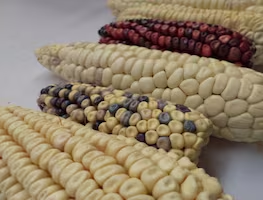Más Información

"Grave error" dejar a Marko Cortés como líder en el Senado, advierte Adriana Dávila; PAN debe desligarse de liderazgos fallidos, afirma

Morena prepara nueva reforma constitucional para prohibir maíz transgénico; "sin maíz no hay país": Monreal

Último fin de semana del 2024 registra 171 asesinatos: SSPC; en promedio mataron a 57 personas por día

Oposición rechaza postura de Morena sobre revueltas por dichos de Trump; “está fuera de la realidad”, acusan

INE debe determinar si Morena puede promover el voto en la elección judicial: Sheinbaum; “importante que todas las autoridades participen”
Nirvana Heinze Balcázar and David Díaz de Sand, Sciences and Humanity High School (CCH)
south campus, under the National Autonomous University of Mexico (UNAM) , were invited to participate at the Taiwan International Science Fair 2020 for their research on polystyrene degradation.
According to UNAM Global , the accreditation for the international event was obtained at the National Sciences Expo 2018 , which took place in Morelia, Michoacán . The young high school students won with a project called “Polystyrene Degradation by eans of Mealworm and Artemia Franciscana microbiota.”
The students commented that their work consisted of polystyrene (styrofoam) degradation through the use of microbiota –an aggregate of microorganisms that resides on or within organic tissues and biofluids- found in the Tenebrio molito (mealworms) and the Franciscan artemia (a tiny crustacean) species.
According to the National Association of Plastic Industry and the National Chemical Industry Association , Mexico produces 125 thousand tonnes of styrofoam every year, 30% of which is consumed in Mexico City .
Heinze Balcázar pointed out that it usually takes 500 years to eternity for styrofoam to break down . However, by using mealworm and artemia microbiota, the young students managed to break down styrofoam materials by 32% in only five weeks’ time.
The young students have worked on this issue since their first high school semester, when they decided to join a Scientific Dissemination program under the tutelage of Pável Castillo Urueta and Magali Estudillo Clavería .
dm






